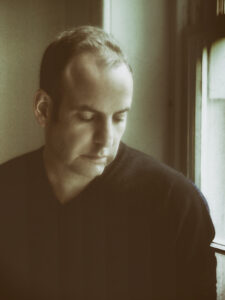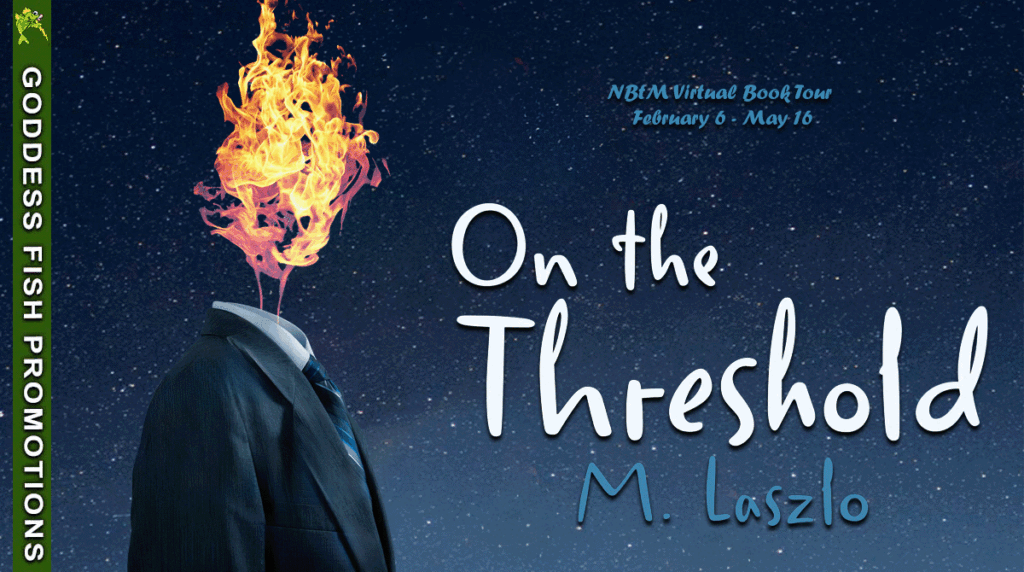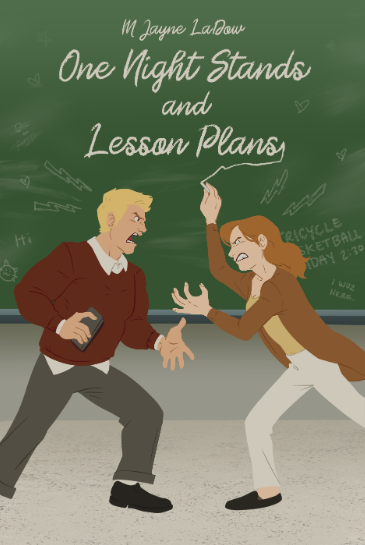This post is part of a virtual book tour organized by Goddess Fish Promotions. One randomly chosen winner via rafflecopter will win a $25 Amazon/BN.com gift card. Click on the tour banner to see the other stops on the tour.
What are your favorite TV shows?
Honestly, none. Nothing compares to watching old movies late at night.
What is your favorite meal?
Fish and chips. The best fish to batter in that way would be either haddock or rock salmon. Also, all the great British writers and artists and musicians tend to love fish and chips. Two things to remember, too, if you want your battered fish to taste just right: tartar sauce and malt vinegar.
If you were to write a series of novels, what would it be about?
The series would be worthwhile only if a certain significant theme happened to be the thing that served to bind the individual works together. For example, it would be great to write a trilogy about the various aspects of academia. This is because virtually nothing in a person’s life could ever be more fundamental than the educational process itself.
Is there a writer you idolize? If so, who?
No writer really deserves to be idolized. On the other hand, a great writer can teach us something about some aspect of the phenomenological world. Also, just about any writer could hypothetically make the reader think and discover something or come to some understanding or epiphany. For example, it could be that Nietzsche or some other famous figure like that fulfills the purpose. Or, it could be that a well-written comic book or obscure graphic novel triggers a big breakthrough. That’s why there’s no good reason to be too judgmental with regard to books or anything else in the world.
How did you come up for the title of this book?
I pinched the title from the name of an obscure, nineteenth century poem by Amy Levy. In the poem, she describes a dream in which she envisioned the death of someone near and dear to her. Similarly, my novel tells of a chap with a dreamlike relationship to a deathly projection of energy originating in his very own unconscious. Somehow Amy Levy’s title just seemed right for my work. She was a nice person, too, and a good friend to Oscar Wilde.
Obsessed with learning the origins of the cosmos, the actual meaning of life, and the true purpose of civilization, a fine Scotsman named Fingal T. Smyth dedicates himself to the study of Plato’s most extraordinary ideas. Convinced of Plato’s belief that humankind possesses any and all innate knowledge deep within the collective unconscious mind, Fingal soon conducts a series of bold, pioneering occult-science experiments by which to resolve the riddle of the universe once and for all. However, Fingal forgets how violent and perilous the animal impulses that reside in the deepest recesses of the unconscious mind. And when Fingal unleashes a mysterious avatar of his innate knowledge, the entity appears as a burning man and immediately seeks to manipulate innocent and unsuspecting people everywhere into immolating themselves. Now, with little hope of returning the fiery figure into his being, Fingal must capture his nemesis before it destroys the world.
Enjoy an Excerpt
Autumn, 1907: late one morning, some kind of torrid, invisible beast seemed to wrap itself all around Fingal T. Smyth’s body. Each one of his toes twitching fiercely, he exited the castle and scanned the distant, Scottish Highlands. Go back where you came from. As the entity wrapped itself tighter all about his person, Fingal blinked back his tears. I’m melting, I am. Aye, it’s the heat of fusion.
Gradually, the beast’s heartbeat became audible—each pulsation. At the same time, too, the illusory heat of transformation emitted an odor as of oven-roasted peppercorns dissolving in a cup of burnt coffee.
Over by the gatehouse, Fräulein Wunderwaffe appeared—the little German girl wearing a plain-sewn robe and square-crown bowler. In that moment, she no longer seemed to be a sickly child of seven years: her inscrutable expression resembled that of a wise, indifferent cat.
Perhaps even some kind of lioness. Fingal cringed, and he recalled a fragment of conversation from three weeks earlier.
“She suffers from a most unnatural pathology, an anguished, maniacal obsession with cats,” Doktor Hubertus Pflug had explained. “Ever since the poor girl was a baby, she has always regarded it her fate to one day metamorphose into a glorious panther, for she believes herself to be ein Gestaltwandler. Do you know this word? It means shapeshifter and refers to someone who possesses the power to take the form of anything in nature.”
The heat radiated up and down Fingal’s spine now, and his thoughts turned back to the present. Aye, it’s a change of phase. I’m melting into a chemical compound. Despite all, he greeted the girl and willed himself to flash a grin.
About the Author:

OLYMPUS DIGITAL CAMERA
Buy the book at the publishers.


























Thanks for hosting!
Great interview! This looks outstanding. Thanks for sharing.
The cover art is fantastic. Sounds like a really good story.
Thank you for hosting me!
Thank you for stopping by and sharing your book with us. Best of luck with it!
If you could step into the world of one of your favorite books as a character, who would you be and what role would you play?
Sounds like a great read.